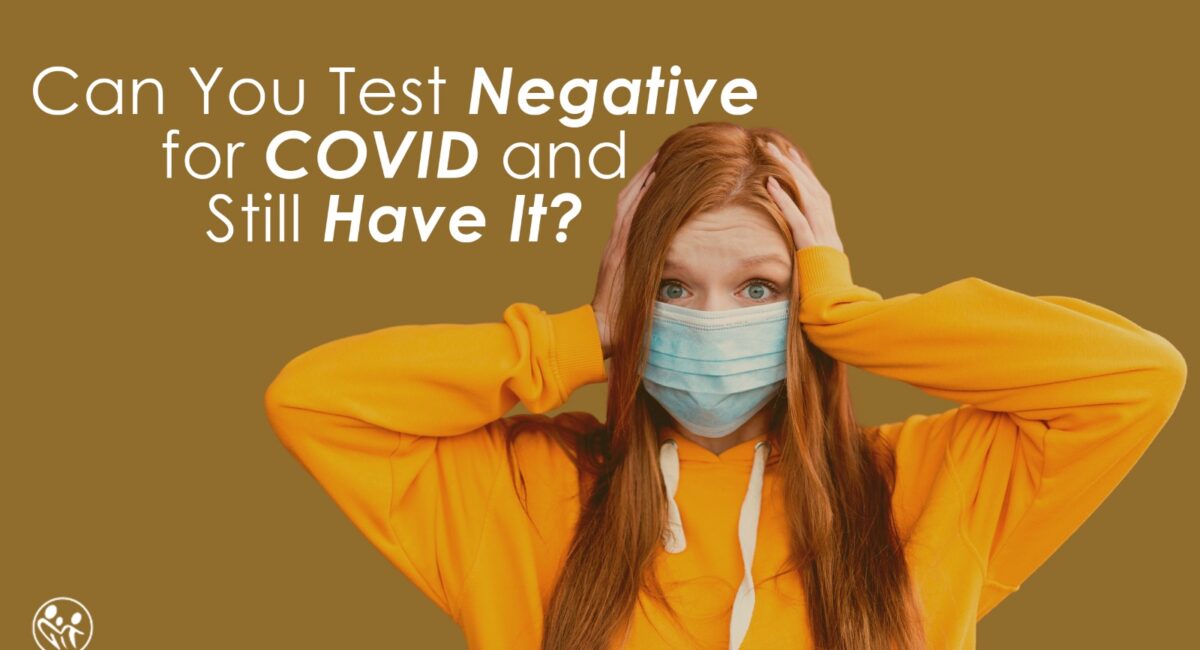Imagine you wake up with a scratchy throat and mild body aches. You are worried it might be COVID, so you get a test done right away.
But the result comes back negative. You feel a wave of comfort and go about your day, meeting family or heading to work.
A few days later, your symptoms get worse, and a repeat test turns out positive, leaving you questioning how the first one missed it.
This happens more often than most people realise; a negative test doesn’t always guarantee you’re virus-free.
In this blog, we’ll talk about why false negatives happen and which COVID-19 test is the most accurate and reliable one.
Table of Contents
ToggleWhy a Negative COVID Test Doesn’t Always Mean You’re Safe?
A negative COVID test doesn’t always guarantee you’re virus-free. It only means the virus wasn’t detected at that moment.
False negatives can happen for a few reasons:
- Timing matters: If you test too soon after exposure, the virus may not have multiplied enough to show up.
- Type of test: PCR tests are more accurate than rapid antigen tests, which can miss infections, especially in the early stages.
- Snapshot result: A test only reflects your status on the day you took it. You could still develop an infection a few days later.
That’s why it’s smart to stay cautious. If you feel unwell or were exposed, limit contact with others, wear a mask, and retest after a couple of days.
A negative result should be reassuring, but not a free pass to let your guard down.
Why Testing Too Early Can Lead to False Negatives?
The timing of your COVID test is important. After exposure, the virus takes a few days to multiply to detectable levels.
If you test too soon, there may not be enough virus in your system for the test to pick up, leading to a false negative.
That’s why health experts recommend waiting at least 3–5 days after a known exposure before testing, or retesting if symptoms develop.
A negative result in the early stages doesn’t guarantee you’re virus-free, and you could still become contagious.
PCR vs. Rapid Tests: How Reliable Are They?
| PCR | Rapid test |
| Very high accuracy
Best 3–5 days after exposure or when symptoms start Detects even small amounts of the virus Results take hours to days (a lab is needed). Usually more expensive |
Moderate accuracy, less reliable
Best when symptoms are present, for quick checks May miss early or low-level infections Results in 15 – 30 minutes Usually cheaper |
Common Reasons for False-Negative COVID Tests
If you’re worried your COVID test might miss an infection, there are simple steps you can take to reduce the risk of a false negative.
- Time your test correctly: If you’ve been exposed, wait at least 3–5 days before testing, or test immediately if symptoms appear. Testing too early increases the chance of a missed infection.
- Choose the right test: PCR tests are more sensitive than rapid antigen tests and are less likely to miss early or mild cases.
- Follow swabbing instructions carefully: Whether self-testing or at a clinic, make sure the swab collects enough sample from your nose or throat.
- Retest if needed: If symptoms continue or worsen, repeat the test after a couple of days, even if your first result was negative.
- Don’t ignore symptoms: A negative test doesn’t override how you feel—stay cautious, limit contact, and consult your healthcare provider if you’re unwell.
By treating your test result as just one piece of the puzzle, rather than the final word, you’ll protect yourself and those around you.
Should You Isolate Even After Testing Negative?
Testing negative is a sign of relief, but if you feel any symptoms, such as fever, cough, and congestion, it is advisable to be cautious and isolate yourself for a short period.
A negative test result doesn’t necessarily mean you are completely alright or free from the disease.
Isolating yourself isn’t just about a negative test; it’s about how you feel and reducing the risk of spreading infection to others.
When to Seek Medical Care Despite a Negative Test?
A negative COVID test doesn’t rule out illness. If you’re experiencing persistent or worsening symptoms, such as fever, fatigue, sore throat, congestion, or body aches, it’s important to contact your healthcare provider.
Your doctor may recommend:
- Repeat testing (since early negatives can miss infection)
- Additional evaluations to check for flu, strep, or other respiratory illnesses
- Treatment options or supportive care to help manage your symptoms
Seeking medical care ensures you get the right diagnosis and timely treatment, while also helping prevent complications or spreading illness to others.
You can also stop by any of our Indiana or Illinois locations for convenient and accurate COVID testing.
How Family Urgent Care Helps with COVID?
We offer accessible care for patients with COVID, eliminating long wait times for appointments.
Our team evaluates your symptoms to determine whether they are related to COVID or if you have the flu, strep throat, or another medical issue.
They prescribe medications and treatments according to the symptoms and guide you on follow-up care.
Our expert health providers and doctors provide convenient, comprehensive support, from testing and symptom relief to medical advice, helping you recover from COVID quickly.
Need fast, reliable care for COVID symptoms? Family Urgent Care is here to help. Visit our website to learn more and book an appointment now.


